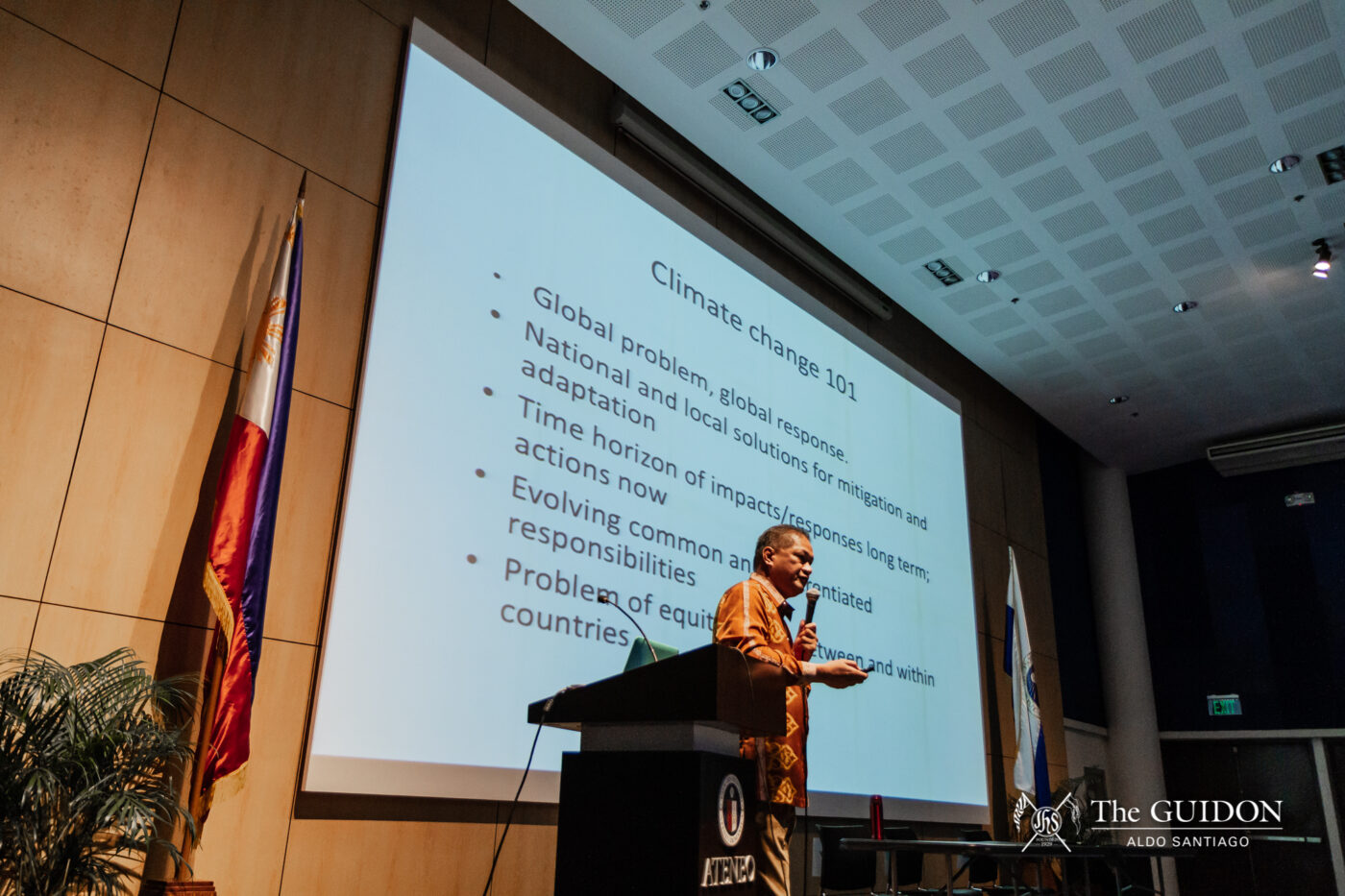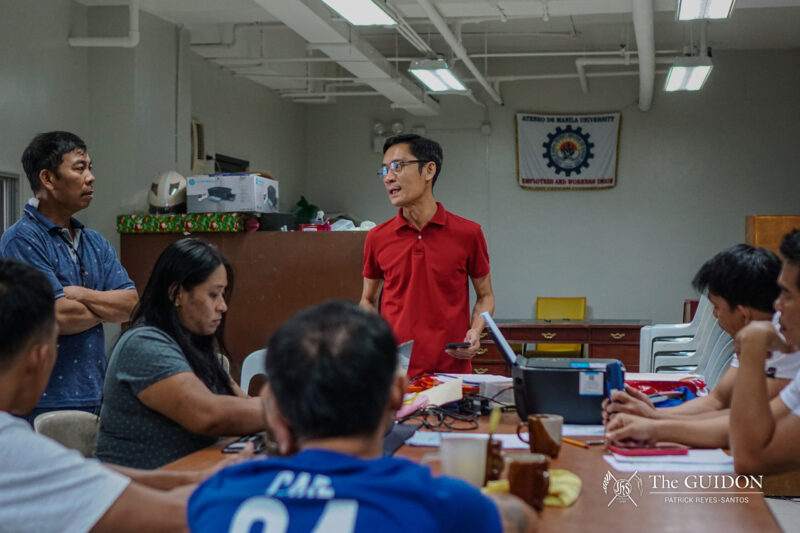CLIMATE PUNDITS Gemma Narisma, Atty. Antonio La Viña, and University President Jose Ramon Villarin, SJ stressed the importance of taking action on climate change especially in terms of temperature, governmental systems, and faith mindsets in Climate Justice: Science, Policy, and Faith as part of this year’s Talakayang Alab sa Bayan (TALAB) on October 10 at the Leong Hall Auditorium.
Organized by the Manila Observatory, the talk shed light on the importance of climate justice and reaffirmed the notion of climate change as an integration of science, law, and religion.
Science
Manila Observatory Climate Scientist and Executive Director Gemma Narisma discussed the increasing trend of global temperatures and how it is majorly caused by developed countries, in turn heavily affecting less developed ones, such as the Philippines.
“Those who emit the least [carbon dioxide emissions] are actually going to be the ones who will be affected the most,” Narisma said.
Narisma discussed how rising temperatures impact developing countries, especially with disasters.
She defines disasters as “hazards [or] extreme events meeting vulnerable people,” and that they are “intensified by the conditions that are due to global warming.” She explained how disasters have more casualties in areas of poverty, such as Visayas and Mindanao in the Philippines.
“They don’t have any capacity to fight such an extreme event. If they get hit, then they get affected,” she said.
Narisma also stressed the importance of limiting global warming to 1.5 degrees Celsius to decrease the negative impacts of climate change. She cited the Intergovernmental Panel on Climate Change’s Special Report on Global Warming of 1.5 degrees Celsius, otherwise known as the IPCC SR15.
“If you go beyond 1.5 [degrees Celsius], even at 2 degrees [Celsius], then you will have very high additional levels of risk due to climate change,” Narisma stated.
“It can be irreversible, and that we don’t have the capacity to adapt to these impacts,” she added.
Policy
Former undersecretary of the Department of Environment and Natural Resources Atty. Antonio La Viña, who has worked nationally and internationally on environmental policy concerns, spoke about the political prospect of climate change. He discussed how climate change has a “problem of equity.”
“The poor gets hit harder and earlier with climate change, even if they contribute the least. The rich suffers less and later, even if they contribute the most,” he stated.
La Viña also emphasized the need to focus on the next 12 years for global, national, and local adaptation and mitigation.
“Even if it’s a global problem, it requires national and local solutions. And the solutions are adaptation and mitigation,” he stated.
“[In order to] change the pathway towards a warmer world, we have to adapt [to the current circumstances]. But we cannot stop at adaptation, because we also have to mitigate [climate change’s effects]. We have to avoid the emissions that increase the problem. We have 12 years to actually avert that, and it’s up to us to do that,” La Viña added.
Meanwhile, he also said that climate change can be mitigated if the government recognizes the need to address it.
“The challenge is not technical. It is not not knowing what to do. It is political [in nature],” he said.
Faith
Member of the 2007 Nobel-Prize-Winning Climate Panel and University President Jose Ramon T. Villarin, SJ spoke about faith’s relation to climate justice. He said that the responsibilities of Christians for creation is to “cultivate and care,” as explained in the book of Genesis in the Bible.
“If we stop caring about creation, we will stop caring about others, about ourselves,” he said.
“Through the lens of faith, we see that the environmental crisis is ultimately a spiritual crisis,” Villarin added.
Villarin also described technocracy and misguided anthropocentrism, which are mindsets that create “nuanced interpretations” of sustainable development for Christians.
He explained how technocracy leads Christians to misusing technology to dominate the world, and how misguided anthropocentrism brings Christians to having no concern for other creatures. He cited this from Laudato Si, an encyclical of environmental caring by Pope Francis.
“In response to technocracy, our faith helps us understand that our mandate of dominion over creation does not mean domination, but stewardship. We are not the giver of the gift of creation. We are stewards who are entrusted with the gift of creation,” he stated.
“In response to misguided anthropocentrism, our faith affirms our identity as human persons [as] created in the image and likeness of God, and proclaims our vision to be ‘co-responsible’ with God in the work of creation,” he added.







